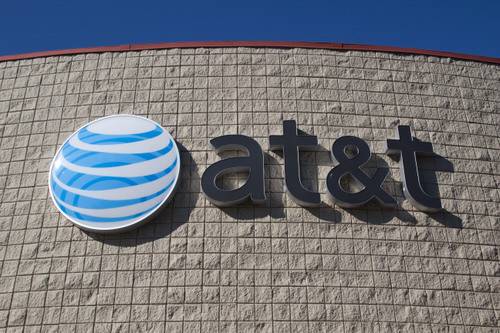
There’s a singular truth about the state of mobile today: All the cellular carriers limit bandwidth for heavy data users. But the devil is in the details. And that’s where AT&T is now locking horns with the Federal Trade Commission, which is suing the wireless operator over what it contends is a good old-fashioned bait-and-switch over the company’s grandfathered unlimited data plans.
AT&T’s pants aren’t entirely on fire—merely charred and smoking. Technically, subscribers with unlimited data plans can still use as much data as they want. But if they use too much—as determined by AT&T—the carrier will throttle down their data speeds to Stone Age levels.
See also: Thanks, Verizon! Now The FCC Is Asking All Carriers About Data Throttling
According to the FTC’s filing, the carrier isn’t doing enough to make that clear to people.
AT&T Throttling Goes Back Years
In 2010, following three years of steadily rising data traffic due to the iPhone, AT&T introduced tiered data plans that capped data usage at levels ranging from 200MB to 2GB. At the same time, it tried to end its unlimited plans, sparking outrage among existing subscribers. The carrier ultimately let those with unlimited-data plans keep them. Only new customers would be forced into tiered plans.
The problem is, AT&T is still calling those plans “unlimited,” even though it clamps down on data speeds for heavy users. This is the heart of the lawsuit. “‘Unlimited’ means unlimited,” tweeted FTC Chairwoman Edith Ramirez. And yet, AT&T takes aim at those subscribers in particular with its “network management process.”
.@ATT promised its customers ‘unlimited’ data, & failed to deliver on that promise. The issue is simple: unlimited means unlimited.
— Edith Ramirez (@ERamirez21017) October 28, 2014
AT&T’s policy states that unlimited users who exceed 3GB (for 3G devices) or 5GB (for 4G/LTE devices) in a month will experience slower speeds. The purported idea is to offset the heavy data loads that congest AT&T’s network, as its webpage explains:
As a result of the AT&T network management process, customers on a 3G or 4G smartphone with an unlimited data plan who have exceeded 3 gigabytes of data in a billing period may experience reduced speeds when using data services at times and in areas that are experiencing network congestion. Customers on a 4G LTE smartphone will experience reduced speeds once their usage in a billing cycle exceeds 5 gigabytes of data. All such customers can still use unlimited data without incurring overage charges, and their speeds will be restored with the start of the next billing cycle.
It all sounds rather familiar, doesn’t it? It should: Throttling is a common practice among carriers. AT&T’s policy is very similar to the same unpopular approach Verizon proposed, but ultimately abandoned in the face of pressure from the FCC.
Deep Throttle
The FTC singles out AT&T’s practice as “deceptive” because the service provider doesn’t make its tactics clear to subscribers. Worse, the commission alleges that AT&T doesn’t just slightly reduce individual speeds to collectively preserve the network. It claims the carrier clamps down so hard that common activities such as streaming video or music wind up being “difficult or nearly impossible.”
So far, the FTC estimates 3.5 million customers have suffered this experience more than 25 million times.
AT&T, predictably, issued a press statement calling the accusation “baseless”:
The FTC’s allegations are baseless and have nothing to do with the substance of our network management program. It’s baffling as to why the FTC would choose to take this action against a company that, like all major wireless providers, manages its network resources to provide the best possible service to all customers, and does it in a way that is fully transparent and consistent with the law and our contracts. We have been completely transparent with customers since the very beginning. We informed all unlimited data-plan customers via bill notices and a national press release that resulted in nearly 2,000 news stories, well before the program was implemented. In addition, this program has affected only about 3% of our customers, and before any customer is affected, they are also notified by text message.
AT&T’s claim that it reaches out to the users it throttles seems legit. But that doesn’t mean the FTC will back down. From the looks of it, AT&T may not either.
Then again, it may have to if it’s using “everyone else is doing it too” as one of its main arguments. That never seems to work when carriers fling that at federal regulators.
Just ask Verizon.
Photo by Rob Wilson for Shutterstock

















